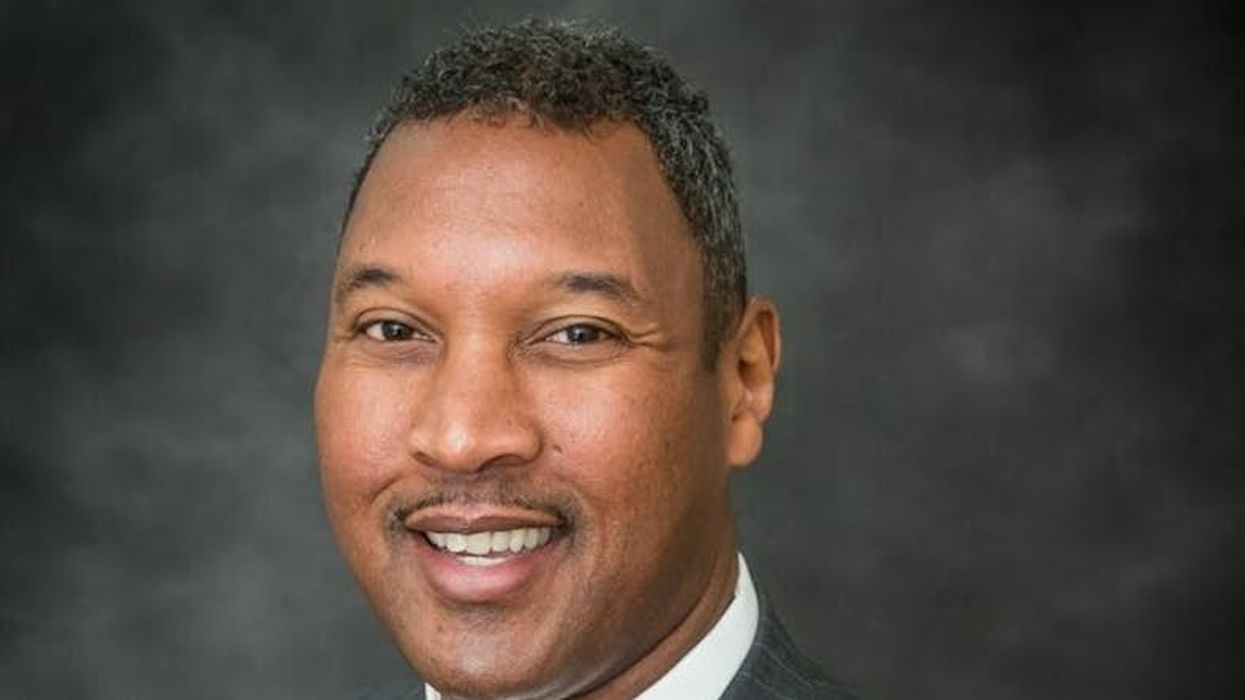Sign Up for The Bluntness Newsletter for Your Weekly Dose of Cannabis News
At its core, the cannabis industry is a business of compliance and policy. Staying in compliance while also building a profitable business is the goal of nearly every cannabis entrepreneur. With laws changing at a rapid pace and more states ushering in both medical and recreational marijuana use, incorporating a lobbyist into business plans is imperative.
One of these trusted advisors guiding businesses along the world of is Edmund DeVeaux. He is the Executive Vice President of Burton Trent Public Affairs --a lobbying firm with subject matter expertise in the cannabis industry. Learn below how Mr. DeVeaux and Burton Trent guide cannabis entrepreneurs through the application process, operationalize businesses while also creating legislation towards the support of cannabis legislation.
What's the first thing a cannabis entrepreneur needs to consider when hiring a lobbyist?
I think it's a matter of ‘when’ and not ‘if.’ Cannabis entrepreneurs will at some point need a lobbyist. Even before the decision of "when" is being formulated, it’s important to make sure that the project budget includes the costs of hiring a lobbyist. Entrepreneurs should also be prepared for an initial monthly retainer engagement of six months to twelve months.
What are some of the objectives that cannabis businesses have when enlisting a lobbyist?
Irrespective of the type of business, lobbyists are hired in a business development capacity to provide clients with competitive advantages. In the case of new cannabis applications, the objective is to help to provide applicants with the best application infrastructure possible. This includes (but is not limited to) site selections, state and local relationships, and team member selection. For existing cannabis operators, the objective could also be to create or maintain responsible and sustainable business environments.
How do you foresee lobbyists playing a part in the continuing decriminalization and legalization of marijuana?
As I quipped at the most recent Cannabis Media Summit in New York City, the cannabis movement has gone from "revolution to evolution." While there will always be the need for some sense of activism, lobbyists provide the cannabis industry with the professionalism needed to engage legislative, regulatory, and commercial interests - all key to the decriminalization and legalization effort.
Once recreational marijuana becomes legal in states that were previously medicinal only, what needs to be done by the operator to handle both medical and recreational use?
In my opinion, I think there will be a continuing need to sustain parallel adult-use and medicinal cannabis markets. On one hand, growers and processors may be required to do more to support both patients and customers. On the other hand, operators may want to remain nimble enough to expand dispensary operations to supply both segments of the growing market.
In what areas do you and your firm support cannabis entrepreneurs in getting their dispensaries open?
Burton Trent has been recognized as one of the leading firms in the development of cannabis applications. This is because of our strong ties to the communities that have decided to host, or are considering hosting cannabis dispensaries. It is essential to have established local relationships for successful operations.
How do you support your clients with their compliance needs?
As with any regulatory matter, Burton Trent is equipped to support our clients because of our knowledge of the regulations and our ability to communicate our client's needs to the regulators. Our clients have a business to run - it's Burton Trent's business to see to the legislative and regulatory affairs of a client so they can run their business.
What are some of the components and business areas that you advise in within in the cannabis industry?
Burton Trent is unique in the industry in that we not only have assisted in drafting cannabis legislation, but we were part of the development of the New Jersey CannaBusiness Association - the state's first and largest trade organization founded for the development of a responsible and sustainable cannabis industry in New Jersey. We advise our clients on all matters legislative, regulatory and commercial.
When advising on the structure of a cannabis dispensary, does social justice and responsibility enter the conversation?
In structuring cannabis operations in general, social and economic justice and equity always enter the conversation. The challenge has been and continues to be how cannabis companies achieve prescribed social and economic parity targets.
Once (and if) marijuana becomes federally legal, what role(s) do you force lobbyists playing?
As with any industry, there will be challenges and opportunities. There is no such thing as a perfect public policy. It will be the role of Burton Trent and other firms to represent our client's and the public's mutual interests
to ensure a climate that supports civic, legislative, regulatory and commercial success.














 Strawberry Cough Strain Review - The BluntnessTHC Farmer
Strawberry Cough Strain Review - The BluntnessTHC Farmer Strawberry Cough Strain - The BluntnessSeednest
Strawberry Cough Strain - The BluntnessSeednest



 The Puffco Peak Pro brings style and ease to cannabis dabbing.Image from Puffco on Facebook
The Puffco Peak Pro brings style and ease to cannabis dabbing.Image from Puffco on Facebook The Puffco Peak Pro is easy to hold AND easy to use.Image from Puffco on Facebook
The Puffco Peak Pro is easy to hold AND easy to use.Image from Puffco on Facebook The Puffco Peak Pro allows you to appreciate cannabis and innovation at the same time.Image from Puffco on Facebook
The Puffco Peak Pro allows you to appreciate cannabis and innovation at the same time.Image from Puffco on Facebook
 The Truth About THC Candle: Cannabis Candles & How to Make Your Own - The Bluntness
Photo by
The Truth About THC Candle: Cannabis Candles & How to Make Your Own - The Bluntness
Photo by